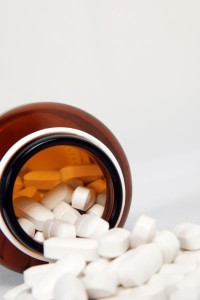A so-called “do-it-at-home” abortion-inducing drug RU486, which is designed to cause women in the early weeks of pregnancy to miscarry, will be a lot cheaper after the Pharmaceutical Benefits Advisory Commission this afternoon decided to recommend it for public funding.
 According to the Australian Christian Lobby, if approved by the Health Minister, this move will see chemical abortion available to people on concession for around $12, compared to the $300 it has cost up until now.
According to the Australian Christian Lobby, if approved by the Health Minister, this move will see chemical abortion available to people on concession for around $12, compared to the $300 it has cost up until now.
When used alongside its companion drug RU486 enables women to terminate pregnancy at home. The drug, mifepristone, works by blocking the action of progesterone which is needed to support a pregnancy, while the companion drug, prostaglandin, helps expel the fetus.
It’s a controversial drug, and was linked to the death of an Australian woman from infection in 2010, as well a number of deaths overseas. Prior to its approval by the Therapeutic Goods Administration, GPs had to apply to the TGA for permission to prescribe it. Now, they simply need online training by the group importing the drug (MSHealth).
With its price set to drop, Christian anti-abortion groups are alarmed at the ease with which doctors can prescribe the drug and women can purchase it.
Right to Life Australia’s Dr Katrina Haller says the approval “furthers the culture of death” in Australia, and has called the drug a “human pesticide”.
Dr Megan Best, author of “Fearfully and Wonderfully Made” , a 2012 book about the ethics of birth and human life, says not only does the use of the drug go against the sanctity of life, but the effects of making the drug cheaper could be dire.
“With easier availability of RU486 is likely to be used more often, therefore replacing surgical abortion to some extent. This means that more women will be exposed to the dangers of this drug, which include physical side-effects (including known fatalities from its use) and the psychological effects of an abortion which sometimes occurs after the woman has returned home, leaving her to cope with the [baby’s] body. We do not yet fully know that long-term consequences of this.”
Wendy Francis, spokesperson for the Australian Christian Lobby says listing RU846 on the PBS gives taxpayers no choice but to fund the drug.
“Taxpayer funding of this means everyone who does not support abortion has their freedom of conscience trampled upon by making them complicit in abortion.”
“The government should not force those who do not agree with abortion to help pay for it. There are question marks over the health impacts on women.”
But it’s not just Christians who are against RU846. Biologist, social scientist, women’s health researcher and former Associate Professor in Women’s Studies at Deakin University, Melbourne, Dr Renate Klein has been vocally opposed to the introduction of the drug in Australia and its listing on the PBS.
In August last year when the drug was registered with the TGA, Dr Klein’s position was published in Fairfax newspapers. In it, she explained the strict conditions which had once applied to the drug’s use had been whittled away, while the effects on the women who use it had not been fully disclosed.
Dr Klein, who is not a Christian, describes herself as in support of “women’s access to safe pregnancy terminations”, and yet she is unconvinced RU486 provides a safe procedure for women seeking an abortion.
“When the first death of a woman in Australia from RU486/PG was reported on March 19 this year, the TGA issued new guidelines for follow-up care to clinics using the abortion pill. We know few details about this death other than that the woman died from sepsis after the abortion,” she wrote.
“Promoters of medical abortions led us to believe that RU486/PG abortion is more ‘‘natural’’ than suction abortion and that it is ‘‘just like a miscarriage’’ and safe. Women who have used this method tell other stories. The vomiting, pain and nausea can be close to unbearable.”
RU486 was approved in Australia in 2006, and the Therapeutic Goods Administration (TGA) last year approved the importation of the drug by MS Health, a subsidiary of Marie Stopes International, the group which pushed for public funding.
Email This Story
Why not send this to a friend?
